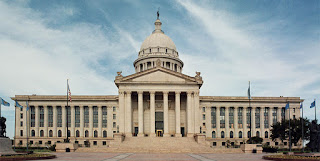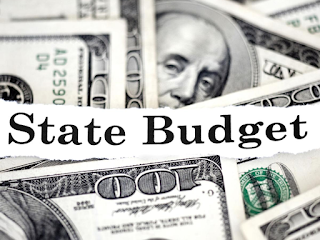HOW TO PUT AN END TO CORPORATE WELFARE
States can join together in compact to stop corporate handouts.
OKLAHOMA CITY, OK (April 3, 2019) – Government support for businesses through subsidies and other special treatment, commonly referred to as corporate welfare, has proven time and again to be an ineffective use of taxpayer dollars. But the practice persists, with policymakers claiming they cannot give up these “tools” to compete with other states for business development. “Multilateral Disarmament: A State Compact to End Corporate Welfare,” a study published by the Mackinac Center for Public Policy and 1889 Institute, proposes a solution to this “collective action” problem and shows how states can join together to end corporate handouts once and for all.
The complexity of state tax systems make it challenging to pinpoint exactly what corporate welfare is. This study takes care to define it properly, describing it as “any financial benefit purposely granted by government to a specific business or class of business and that is not generally available to all businesses and taxpayers.” The most common types of corporate welfare are also identified, as well as what should not be considered corporate welfare. These definitions are important so as not to confuse good tax policy with harmful corporate welfare.
“Government favors for big corporations, whether through outright grants or tax privileges, are an economic drag; calling this ‘economic development’ in a country as developed as the U.S. is utter nonsense,” said Byron Schlomach, director of the 1889 Institute and one of the study’s three authors.
The study also ranks the states by the amount of corporate welfare they hand out. The states with the most corporate welfare, as measured as a percent of state GDP, are Alaska, Kentucky, Louisiana, Michigan and Hawaii. Oklahoma ranks 9th among the states in the percentage of its state GDP handed out as corporate welfare, a dubious position to be in, but nevertheless, already in the top 10.
An important element of the study is a proposed state “cease-fire” agreement, a compact which states would join and agree together not to offer corporate handouts. The compact would go into effect once a certain number of states signed on. This helps mitigate the collective action problem of states not wanting to “jump first” to ban corporate handouts for fear that they’d surrender their competitive edge to other states. If states would join together, it is possible that corporate welfare could be eliminated altogether.
“Instead of competing for the best quality of life and business climate, lawmakers use corporate welfare as a shortcut to make it look like their state is doing well. Our compact gets states to work together to compete on the things that matter to residents in lieu of their race to hand out the most taxpayer money to select companies,” said James Hohman, director of fiscal policy at the Mackinac Center and co-author of the study.
About the 1889 Institute
The 1889 Institute is an Oklahoma think tank committed to independent, principled state policy fostering limited and responsible government, free enterprise and a robust civil society. The publication, “Multilateral Disarmament: A State Compact to End Corporate Welfare” can be found on the nonprofit’s website at
https://1889institute.org/corporate-welfare-1.




















